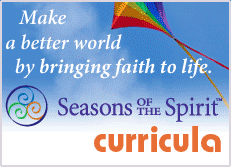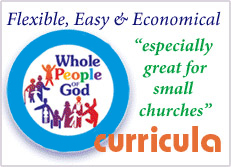
Does prayer have any meaning for someone who is no longer sure about what, if anything, is on the receiving end? If God or the divine isn’t a “being” out there “listening,” what are we doing when we pray?
Many progressive christians struggle with prayer –or, at least, with the kinds of prayer they are often exposed to: shouted, whispered, forceful, timid, begging, and demanding; everything from essay lengthy scripted petitions, to poetry read from a book, to rote recitations that no one pays much attention to, to pronouncements, to communications in a “prayer language.”
They are often gripped by the power of the Christian faith but are simply unable or unwilling to endorse or engage with many of its traditional beliefs, including traditional beliefs about God and prayer. If we're not trying to connect with the kind of God who takes notes, answers “yes” or “no,” and grants or withholds favours, what or whom are we trying to connect with? And so often our words seem to travel no further than the ceiling, no matter what we believe.
The situation for people who describe themselves as “spiritual but not religious” isn’t much different. They may not “pray” in the traditional sense or in traditional ways, but many long to connect or communicate with something larger than themselves – as good a definition of “prayer” as any – whether they name that something “the divine,” “big love,” or “spirit”; or think of it as a “force” or “energy” that connects all things.
This is not an academic book, nor a “how-to” document. Rather, it poses questions that are important to progressive Christians and to the “spiritual but not religious.” Working only with the assumption that prayer might have value even for those who are not sure what, or who, or even if God is, this book is about opening oneself to the “possibility of God.”
Vance Morgan, Author
Vance G. Morgan is Professor of Philosophy at Providence College, Providence, Rhode Island and is the author of the popular blog Freelance Christianity: Philosophy, Faith, and the Real World. His previous books include Miracles and Supernatural Physics: Simone Weil on the Relationship Between Science and Religion (2009), and Weaving the World: Simone Weil on Mathematics, Science, and Love (2004) .
A gifted scholar and natural teacher, he received the Joseph R. Accinno Faculty Teaching Award (2005), Providence College, which recognizes a “faculty member who not only demonstrates excellence in teaching, but also conveys a passion and enthusiasm for learning, and shows concern for students’ academic and personal growth.
Media Reviews
Rev. Eric Springsted, Ph.D.
Presbyterian Minister, Former Chaplain at Princeton University, Published ScholarMorgan challenges the powerful, but dead end, assumptions of so many about prayer, knocking down a lot of walls that keep them from prayer. But that is only half the case. Insightfully and modestly, he proposes some things that prayer might be in a meaningful life. One of the best is his meditation on Simone Weil's thought that attention and openness are at the heart of prayer.
Mitchell Lindemann
Episcopal PriestPrayer for People Who Don’t Believe in God is a delight to read. As a pastor and episcopal priest for the past 36 years, I found the themes explored here to be resonant and eternal. The intellectual and theological juxtapositions and syntheses are fresh, energetic and contemporary. What might be common to the ethical unbeliever and the person of faith when it comes to living, thinking, doubting and any attempt at defining or “practicing" prayer? Far more than one might imagine.
Vance Morgan has produced a gem of a primer on, not the traditional forms, practices, and categories of prayer (praise, adoration, petition, etc), but rather the how's, why’s and wherefores of prayer, while living a full, abundant HUMAN life (full of life's doubts, joys, terrors, desolations and yes—-hope and meaning).
This book will always have a prominent place on my shelf-- to be enjoyed again and again, quoted and used to benefit doubters, prayer-practitioners and truth seekers alike.







